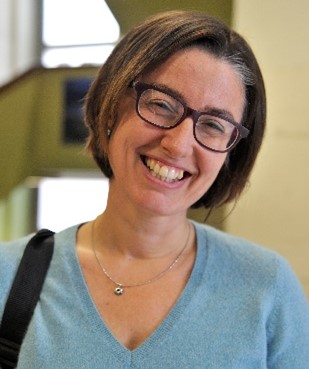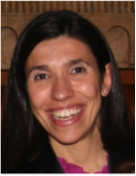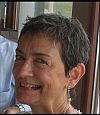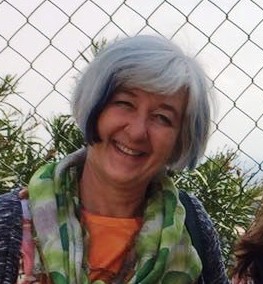Studying at the University of Verona
Here you can find information on the organisational aspects of the Programme, lecture timetables, learning activities and useful contact details for your time at the University, from enrolment to graduation.
Academic calendar
The academic calendar shows the deadlines and scheduled events that are relevant to students, teaching and technical-administrative staff of the University. Public holidays and University closures are also indicated. The academic year normally begins on 1 October each year and ends on 30 September of the following year.
Course calendar
The Academic Calendar sets out the degree programme lecture and exam timetables, as well as the relevant university closure dates..
| Period | From | To |
|---|---|---|
| Sem. 1A | Sep 28, 2020 | Oct 31, 2020 |
| Sem. 1B | Nov 16, 2020 | Dec 23, 2020 |
| Sem. 2A | Feb 15, 2021 | Mar 20, 2021 |
| Sem. 2B | Apr 12, 2021 | May 15, 2021 |
| Session | From | To |
|---|---|---|
| Sessione d'esame invernale | Jan 18, 2021 | Feb 13, 2021 |
| Sessione d'esame estiva | Jun 7, 2021 | Jul 24, 2021 |
| Sessione d'esami autunnale | Aug 23, 2021 | Sep 18, 2021 |
| Period | From | To |
|---|---|---|
| Festa di Ognissanti | Nov 1, 2020 | Nov 1, 2020 |
| Festa dell'Immacolata | Dec 8, 2020 | Dec 8, 2020 |
| Vacanze di Natale | Dec 24, 2020 | Jan 6, 2021 |
| Vacanze di Pasqua | Apr 2, 2021 | Apr 6, 2021 |
| Festa della liberazione | Apr 25, 2021 | Apr 25, 2021 |
| Festa del lavoro | May 1, 2021 | May 1, 2021 |
| Festa del Santo Patrono | May 21, 2021 | May 21, 2021 |
| Festa della Repubblica | Jun 2, 2021 | Jun 2, 2021 |
| Vacanze estive | Aug 9, 2021 | Aug 15, 2021 |
| Description | Period | From | To |
|---|---|---|---|
| Laboratori insegnamenti 1A | Lab. 1A | Nov 2, 2020 | Nov 14, 2020 |
| Laboratori insegnamenti 1B | Lab. 1B | Jan 7, 2021 | Jan 16, 2021 |
| Laboratori insegnamenti 2A | Lab. 2A | Mar 22, 2021 | Apr 1, 2021 |
| Laboratori insegnamenti 2B | Lab. 2B | May 17, 2021 | May 29, 2021 |
Exam calendar
Exam dates and rounds are managed by the relevant Humanistic Studies Teaching and Student Services Unit.
To view all the exam sessions available, please use the Exam dashboard on ESSE3.
If you forgot your login details or have problems logging in, please contact the relevant IT HelpDesk, or check the login details recovery web page.
Should you have any doubts or questions, please check the Enrollment FAQs
Academic staff
 monica.antonello@univr.it
monica.antonello@univr.it
 3409616648
3409616648
 valentina.biino@univr.it
valentina.biino@univr.it
 marisa.bonafini@univr.it
marisa.bonafini@univr.it
 paolamaria.caleffi@univr.it
paolamaria.caleffi@univr.it
 antonio.cosentino@univr.it
antonio.cosentino@univr.it
Ganzerla Luca Giovanni Michelangelo
 lucagiovanni.ganzerla@univr.it
lucagiovanni.ganzerla@univr.it

Ghirotto Luca
 luca.ghirotto@univr.it
luca.ghirotto@univr.it
 licia.landi@univr.it
licia.landi@univr.it

La Rana Adele
 adele.larana@univr.it
adele.larana@univr.it
 giuseppe.longo@univr.it
giuseppe.longo@univr.it
 beatrice.melodiafesta@univr.it
beatrice.melodiafesta@univr.it

Migliorati Lorenzo
 lorenzo.migliorati@univr.it
lorenzo.migliorati@univr.it
 045802 8135
045802 8135
 paolo.nitti@univr.it
paolo.nitti@univr.it
 luca.odini@univr.it
luca.odini@univr.it
 michele.picotti@univr.it
michele.picotti@univr.it
 stefania.pontrandolfo@univr.it
stefania.pontrandolfo@univr.it
 cristina.richieri@univr.it
cristina.richieri@univr.it
 paola.schiano@univr.it
paola.schiano@univr.it
 3383725508
3383725508
 federica.zantedeschi@univr.it
federica.zantedeschi@univr.it
Study Plan
The Study Plan includes all modules, teaching and learning activities that each student will need to undertake during their time at the University.
Please select your Study Plan based on your enrollment year.
1° Year
| Modules | Credits | TAF | SSD |
|---|
2° Year activated in the A.Y. 2021/2022
| Modules | Credits | TAF | SSD |
|---|
3° Year activated in the A.Y. 2022/2023
| Modules | Credits | TAF | SSD |
|---|
4° Year activated in the A.Y. 2023/2024
| Modules | Credits | TAF | SSD |
|---|
English laboratory 4th year
5° Year It will be activated in the A.Y. 2024/2025
| Modules | Credits | TAF | SSD |
|---|
| Modules | Credits | TAF | SSD |
|---|
| Modules | Credits | TAF | SSD |
|---|
| Modules | Credits | TAF | SSD |
|---|
| Modules | Credits | TAF | SSD |
|---|
English laboratory 4th year
| Modules | Credits | TAF | SSD |
|---|
| Modules | Credits | TAF | SSD |
|---|
Legend | Type of training activity (TTA)
TAF (Type of Educational Activity) All courses and activities are classified into different types of educational activities, indicated by a letter.
Children's Literature (It will be activated in the A.Y. 2022/2023)
Teaching code
4S00989
Credits
9
Scientific Disciplinary Sector (SSD)
M-PED/02 - STORIA DELLA PEDAGOGIA
Learning outcomes
A) Knowledge and comprehension
KINDERGARTEN: - Knowledge of the discipline: 1) definition; 2) fields and sectors; 3) epistemology; 4) the functions of Children’s Literature during pre-school age. - Knowledge and understanding of: 1) national and international picturebooks and illustrated books (features and theoretical aspects); 2) fairy tales (formal features, topics, adaptations, re-writings). - Knowledge of the most significant classical and contemporary picturebook makers. - Knowledge and understanding of: 1) the appropriate selection criteria for quality children’s books; 2) theoretical frameworks, targets, literacy promotion methods with the objective of educating future readers. - Knowledge and understanding of read-aloud functions, features and techniques (with special reference to expressive-literary performance).
PRIMARY SCHOOL - Knowledge of the discipline: 1) definition; 2) fields and sectors; 3) epistemology; 4) the main features of historical children’s literature aimed at interpreting contemporary children’s books.
- Knowledge and understanding of: 1) the new educational and formative role of children’s literature; 2) the features of the best national and international contemporary children’s literature: trends, topics, characters, values, implicit and symbolic meanings, stylistic quality; 3) national and international picturebooks and illustrated books (features and theoretical aspects); 4) fairy tales (formal features, topics, adaptations, re-writings); 5) the definition of a “classic”, of its features and of appropriate reading-strategies for a selection of significant authors and titles; 6) contemporary national editorial products for children (strengths and weaknesses).
- Knowledge and understanding of pedagogy and reading promotion: theoretical framework, general and specific targets, methods in line with the most important international and national research.
B) Knowledge and applied comprehension practice
KINDERGARTEN:- Identifying a quality or commercial picturebook, according to a set of scientific criteria (i.e. artistic, literary, psycho-pedagogical) applied to its verbal and visual contents. - Identifying the best illustrated or non-illustrated versions of fairy tales and the best adaptations and rewritings. - Reading different narrative texts aloud in an expressive and interpretative way, avoiding excessively emphatic interpretations. - Identifying the most suitable post-reading activities available after read-aloud sessions, in order to promote reading and educate motivated and critical readers. - Evaluating and planning reading projects according to multidisciplinary and interdisciplinary scientific criteria (i.e. literary and psycho-pedagogical). - Advising colleagues and parents about the new functions of children’s literature and the identification criteria for good children’s books.
PRIMARY SCHOOL - Applying scientific, literary and psycho-pedagogical criteria to identify: 1) good picturebooks, fiction books, children’s poetry books for the 6-10 age-range; or 2) poor quality, highly standardized and stereotyped commercial books. - Reading and re-reading texts with an expressive and interpretative approach based on specific textual features. - Selecting literary activities and educational games aimed at stimulating a deep interpretation and comprehension of the texts. - Interpreting the legislation dealing with Children’s literature and reading Pedagogy. - Advising colleagues and parents about the new functions of children’s literature and the identification criteria for good children’s books.
C) Making judgements KINDERGARTEN - Knowledge and understanding of quality picutrebooks and critical aspects of contemporary national pre-school editorial products (strengths and weaknesses), both in terms of verbal and visual narration. - Assessing different read-aloud performances carried out by adults. - Assessing early literacy and reading projects. - Self-evaluating one’s performance with reflective posture through different techniques, including group discussions and audio recordings.
PRIMARY SCHOOL - Knowledge and understanding of quality children’s literature and critical aspects of contemporary national editorial products (strengths and weaknesses), both in terms of verbal visual narration. - Selecting quality children’s narrative texts and identifying possible adaptation options. - Assessing different read-aloud performances carried out by adults. - Assessing literacy and reading projects. - Self-evaluating one’s performance with reflective posture through different techniques, including group discussions and audio recordings.
D) Communication skills
KINDERGARTEN - Using appropriate technical terminology to deal with single works of fiction (especially picturebooks), and, in general, with pedagogy and the promotion of reading. - Carefully listening to children’s needs and reading interests. - Introducing and explaining reading projects to colleagues and parents.
PRIMARY SCHOOL - Using appropriate technical terminology to deal with single works of fiction (especially picturebooks), and, in general, with pedagogy and the promotion of reading. - Carefully listening to children’s needs and reading interests. - Introducing and explaining reading projects to colleagues and parents.
E) Learning skills
KINDERGARTEN- Researching paper and digital sources to find: 1) fiction works and illustrated books to be included in projects; 2) information to create effective, theoretically grounded educational projects. - Adapting projects in a flexible way, according to children’s interests, needs, emotions, and cognitive abilities. PRIMARY SCHOOL - Researching paper and digital sources to find: 1) fiction works and illustrated books to be included in projects; 2) information to create effective, theoretically grounded educational projects. - Adapting projects in a flexible way, according to children’s interests, needs, emotions, and cognitive abilities.
Educational offer 2023/2024
You can see the information sheet of this course delivered in a past academic year by clicking on one of the links below:
Type D and Type F activities
Modules not yet included
Career prospects
Module/Programme news
News for students
There you will find information, resources and services useful during your time at the University (Student’s exam record, your study plan on ESSE3, Distance Learning courses, university email account, office forms, administrative procedures, etc.). You can log into MyUnivr with your GIA login details: only in this way will you be able to receive notification of all the notices from your teachers and your secretariat via email and soon also via the Univr app.
Stage e Tirocini
Le attività di tirocinio indirette e dirette, per complessive 600 ore pari a 24 crediti formativi universitari, come stabilito dal D.M. 249/2010, hanno inizio nel secondo anno di corso e si svolgono secondo modalità tali da assicurare un aumento progressivo del numero dei relativi crediti formativi universitari fino all'ultimo anno.La struttura generale del tirocinio prevede:
- II annualità 100 ore di tirocinio pari a 4 CFU
- III annualità 100 ore di tirocinio pari a 4 CFU
- IV annualità 175 ore di tirocinio pari a 7 CFU
- V annualità 225 ore di tirocinio pari a 9 CFU.
Il tirocinio è seguito da insegnanti tutor coordinatori e da tutor organizzatori distaccati, rispettivamente a tempo parziale e a tempo pieno, presso il CdS. Esso prevede attività che si sviluppano secondo modalità di partecipazione periferica e modalità di partecipazione attiva: tali attività dovranno essere, adeguatamente documentate da parte dello studente e saranno supervisionate dai tutor competenti.
La frequenza alle attività di tirocinio è obbligatoria.
Documents
| Title | Info File |
|---|---|
|
|
pdf, it, 115 KB, 23/06/21 |
Progetto Dinamo corsi di formazione continua
I corsi del Progetto Dinamo sono una proposta di formazione continua per i/le docenti della scuola dell'infanzia e primaria in servizio elaborata dal Corso di Studi in Scienze della Formazione Primaria dell'Università di Verona.
La loro frequenza, in numero limitato, è aperta anche agli studenti di Scienze della formazione primaria.
L'iscrizione non comporta oneri per gli studenti.
Per i corsi di 8 ore sarà riconosciuto 1 CFU nei crediti liberi; per quelli di 16 ore i crediti liberi riconosciuti saranno 2.
Le modalità di iscrizione saranno comunicate e gestite tramite i rappresentanti degli studenti.
Documents
| Title | Info File |
|---|---|
|
|
pdf, it, 198 KB, 29/08/22 |
Gestione carriere
Linguistic training CLA
Practical information for students
Documents
| Title | Info File |
|---|---|
|
|
pdf, it, 325 KB, 02/05/23 |
|
|
pdf, it, 212 KB, 02/05/23 |
|
|
pdf, it, 131 KB, 02/05/23 |
Student mentoring
Student login and resources
Graduation
Documents
| Title | Info File |
|---|---|
|
|
pdf, it, 434 KB, 07/02/24 |
|
|
pdf, it, 418 KB, 30/11/23 |
|
|
pdf, it, 131 KB, 19/03/24 |
eTwinning
Il Corso di SFP di Verona fa parte del Gruppo Europeo per la formazione eTwinning per i futuri insegnanti – Initial Teacher Education (ITE). Seminari di presentazione della piattaforma e delle sue potenzialità, introduzione alla comunità e/o laboratori sull’uso della stessa sono proposti annualmente come parte integrante dei Laboratori di Lingua Inglese per la Professionalità Docente, e quindi come parte dell’offerta formativa; per il II anno anche con attività progettuale in lingua inglese, studente-studente o a piccoli gruppi.
Per il I anno, a partire dall’ A.A. 2017/2018 è stato realizzato con il supporto dell’USR Veneto e la collaborazione delle ambasciatrici eTwinning un incontro seminariale di presentazione della comunità e piattaforma eTwinning, come parte del Laboratorio di Lingua Inglese per la Professionalità docente. Gli studenti svolgono attività di ricerca e reperimento materiale nel portale eTwinning, studiano alcuni progetti considerati “buone pratiche” e si confrontano con una breve attività in piccolo gruppo sui primi passi di introduzione e orientamento ad un progetto eTwinning. Solitamente sono coinvolti circa un centinaio di studenti.
Per il II anno, a partire dall’A.A. 2020/2021, è stato introdotto un Laboratorio eTwinning (12 ore – 1CFU) di progettualità didattica in lingua inglese. Gli studenti svolgono attività individuali all’interno della Comunità volte a costruire una rete di partner e cogliere ogni potenzialità offerta dalla piattaforma. Inoltre, viene proposta una simulazione progettuale, in piccoli gruppi, dall’introduzione dei partner alla valutazione e disseminazione dei risultati di un progetto eTwinning. Solitamente partecipano circa un centinaio di studenti. Al termine del modulo è richiesto un portfolio digitale in lingua inglese. I futuri docenti esercitano contemporaneamente competenze linguistiche, digitali e sociali facilmente riutilizzabili nella professione futura.
Per il V anno, a partire dal AA 2022/2023, è stato introdotto, all'interno del Laboratorio di Lingua Inglese, un Laboratorio eTwinning di progettualità didattica con un altro ITE (12 ore – 1CFU).
Nell'a.a. 2022/2023 è stata attivata e realizzata una collaborazione con SFP - Università di Cagliari.
Nell'a.a. 2023/2024 si è attivata una collaborazione con l'Università di Castilla-La Mancha (Spagna).
Le attività realizzate sono state presentate durante il Coordinamento Nazionale eTwinning ITE
- a Firenze il 17 e 18 marzo 2022
- e a Lecce il 15 e 16 maggio 2023



































